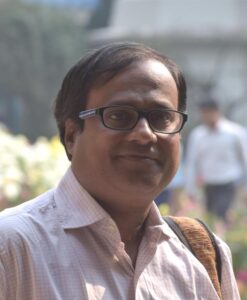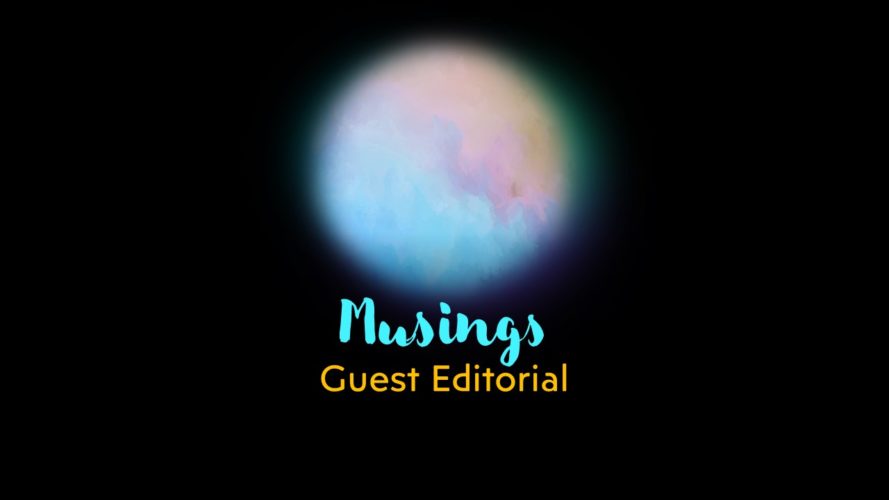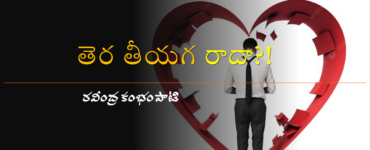 “No wind. No storm.
“No wind. No storm.
Just the trees heaving in their own sorrow.”
-‘ More in Dreams than in the Flesh’, Jayanta Mahapatra
Poetry is pre-eminently the art of language. A well-crafted poem records a unique experience of the world where the poet takes us on a pleasure-ride into the dark embrace of eternal silence, seeking a place in the lyric order of things while words weave themselves into necessary lines. For me, the job of the poet consists of placing those objects of the visible world which have become invisible due to the glue of habit in an unusual position which strikes the soul and gives them a force of their own. Poetry has been my door, both for entry and exit into a fuller life. It has been the substance of my imagination and the repertoire of my values. In a world given mostly to the pursuit of profit, delight and cheap popularity, the poet stands out as the gleaner of values and the saviour of our race.
When I examine myself, I find that my commitment to the act of translating parallels my commitment to poetry. Since I am a witness of the power of literature, I believe that worthy literature should be accessible to as many readers as possible and therefore translating Bengali writers into English has been a project very close to my heart. Many years ago while walking on the banks of the Dulung, a picturesque rivulet in the south-western part of West Bengal bordering Jharkhand, I became conscious of this sense of duty to cater to my native linguistic heritage and to write back in my own idiom. I wanted to share the aesthetic and spiritual experiences of the writing of my land with the global reading community of English. The Dulung, operates in my imagination, as a metaphor for the celebration of the local in a global tongue.
I began, with zeal, to write for my people and the land. My collaborations worked like bridges across cultures. Translation of cultures has become my literary responsibility. I think all writers should perform this basic duty in a multilingual country like India where Bhasha Sangam is the key to a rich cultural mosaic. Living and longing in India is always a journey we undertake through its profusion of languages. We cannot become hard and cold to our own land and its people.
The products of translation will never substitute the original. No translation is complete and definite and I do not consider one particular translation of a piece as the only way to do justice to its author. But a translative attempt is almost existential and always a beginning towards ensuring the longevity of a work. As a translator, I am keenly aware of the fact that a translated corpus survives with possibilities and leaves room for further translation when time ticks to a new frame.
Translation has no rude walls. It breaks boundaries. We run after manifestations searching for roots. At times, a seed sprouts with hope. Literature is a clear blue sky for all who inhabit space. All are dignified contributors to a knowledge society. The discourse of dignity is paramount in contemporary literature written from different cultural and linguistic positions. Writing is a sunny affair to bring all positive vibes in our pores, a pied flower to readers. Translation, as a sincere practice, has limitations in transferring meaning from one language to another or one culture to another but our faithfulness to persevere is an act of volition.
The great Chilean poet Pablo Neruda built a house on Isla Negra, facing the Pacific Ocean. Writing across languages is like that house looking upon an ocean of beauty. Holding our impressions tight, we return to it to imaginatively acquire all that we wish for. Only the moment leans out. For what else is there? Our sensibilities are the only lilies we pluck.
Writing is an act of commitment; a treasure of jewels whose worth is immeasurable. If we have ever seen magic, it has been in writing. It is mystic, it is wild. To a lot of people, as to myself, it is home—a shelter from all that plagues us. For us, words never sleep. They keep happening, playing a long languid game of love and longing to where other forms wait. They curl into a rare many-hued fabric of joy from which both our past and future are reshaped to perennially comfort the present. May there be more words everywhere and may they build bridges of communion!
*









Add comment